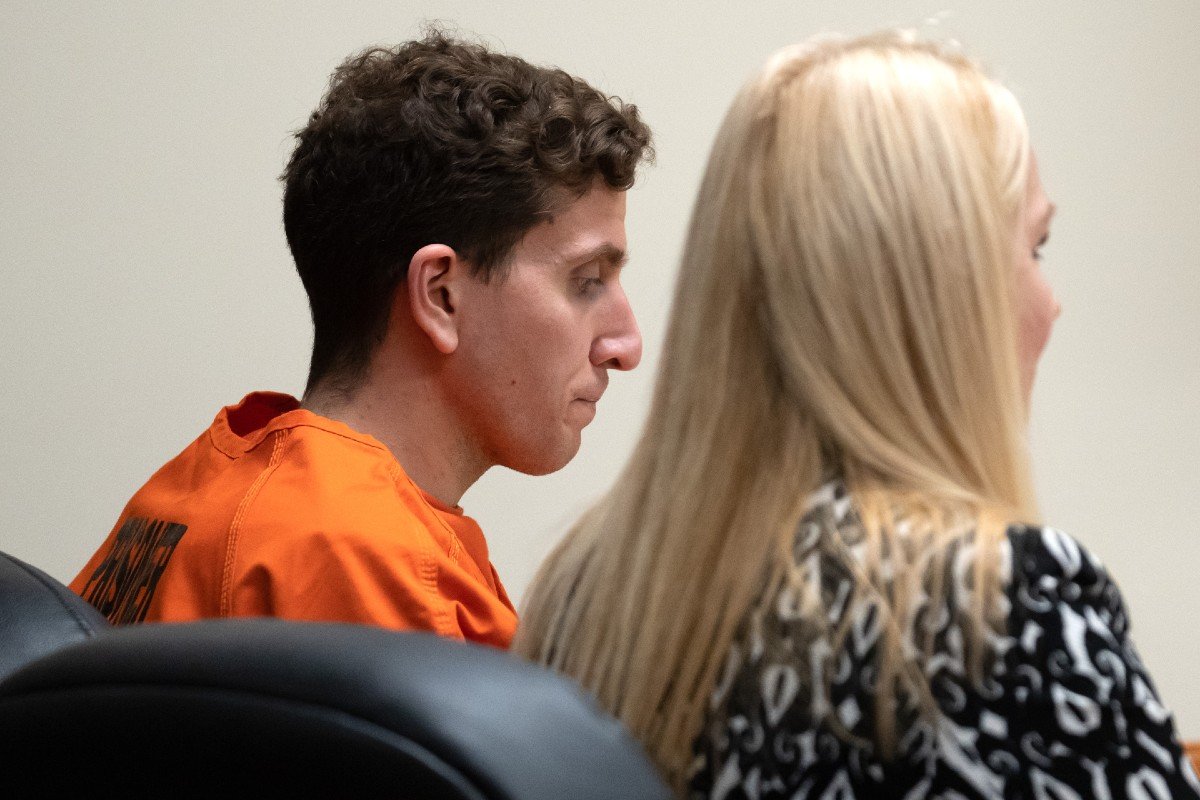DNA evidence against University of Idaho murders suspect Bryan Kohberger amounts to a "very strong case," but does not necessarily place him at the scene at the time of the killings, a former federal agent has said.
Kohberger, a criminology Ph.D. student and teaching assistant at Washington State University, was arrested and charged with four counts of first-degree murder and one count of felony burglary.
The bodies of Madison Mogen, Kaylee Goncalves, Xana Kernodle and Ethan Chapin were discovered in rented accommodation in Moscow, Idaho, on November 13, 2022.
Kohberger was arrested in Pennsylvania, before being extradited to Idaho, where he made an initial appearance in court on January 5, when the affidavit detailing what led police to Kohberger was made public.

Kohberger's former attorney in Pennsylvania, Jason LaBar, said that Kohberger was "eager to be exonerated."
Introducing a discussion on the affidavit on NewsNation, anchor Natasha Zouves said a viewer had "brought up what he saw as five potential holes" in the affidavit that laid out the police's initial case against Kohberger.
In the affidavit, Moscow Police said that a tan leather knife sheath had been discovered at the scene of the crime, close to one of the victims.
Police recovered DNA samples from the Kohberger family home in Pennsylvania on December 27, 2022, and a subsequent DNA report concluded that "a DNA profile obtained from the trash and the DNA profile obtained from the sheath, identified a male as not being excluded as the biological father of Suspect Profile."
The affidavit added: "At least 99.9998% of the male population would be expected to be excluded from the possibility of being the suspect's biological father."
Zouves said the viewer had got in touch to argue that "Kohberger's DNA could have ended up there from someone shaking Bryan's hand and then touching the sheath shortly afterwards."
Commenting on this, guest interviewee and former CIA officer, Tracy Walder, responded that although the DNA evidence did put Kohberger at the crime scene, it did not come with a specific time stamp.
"The DNA is nice to have—it puts him at the scene of the crime—but it doesn't put him at the scene of the crime potentially on that day and around that time," she said. This is a "hole" that can be "poked" in the prosecution's case, Walder continued.
Individual pieces of evidence "don't exist in a vacuum," Walder, a former FBI special agent added, and the prosecuting team will "take all of it" when presenting their case.
"It's the totality of the circumstances," Walder said, referencing the DNA evidence, cell phone data and the description given by a surviving housemate that were listed in the affidavit.
But the prosecution nonetheless "has a strong case," she argued.
The evidence explained in the affidavit "does not place Kohberger in that house on the night of the murders," Duncan Levin, a former federal prosecutor who is now a defense attorney, previously told Newsweek.
Lara Yeretsian, a criminal defense lawyer who worked on convicted killer Scott Peterson's defense, previously said the evidence against Kohberger "is a circumstantial case, after all."
However, she qualified: "When we bring everything together— yes, it does come across as a pretty strong case."
Kohberger appeared in court for a second time on January 12, and his preliminary hearing date is set for June 26.
Uncommon Knowledge
Newsweek is committed to challenging conventional wisdom and finding connections in the search for common ground.
Newsweek is committed to challenging conventional wisdom and finding connections in the search for common ground.
About the writer
Ellie Cook is a Newsweek security and defense reporter based in London, U.K. Her work focuses largely on the Russia-Ukraine ... Read more
To read how Newsweek uses AI as a newsroom tool, Click here.








